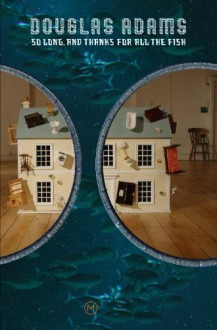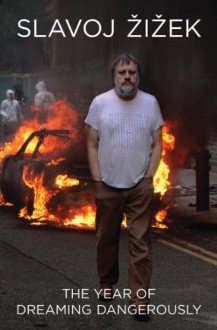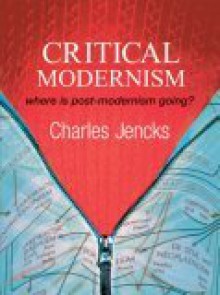
I'll start of by saying that I have read a number of Kurt Vonnegut books (five to be precise) and have a another one on my too read list (Player Piano) and of the five, three of them I have read twice (including this one) and of the remaining two, one I them I intend on reading again (Slaughterhouse Five). As a writer, a satirist, and post-modern thinker, I quite like Vonnegut's work, but for some reason the second time around I found that I simply could not get into this book as much as I was able to get into the other two (Breakfast of Champions and Cat's Cradle), though I am not saying that this book is essentially bad, it was just somewhat dryer than the others that I have read.
However, before I go on with this commentary I have to say something important:

meaning that if you haven't read this book, and would like to read it, then please read this after reading the book because what I want to do here is not so much sway your mind to whether you want, or don't want, to read this book, but rather discuss some of the ideas that Vonnegut explores in this book, and unfortunately I am unable to do this without pretty much revealing what ends up happening in the book.
Now, Vonnegut has explored the concept of religion in his other books, however in Sirens of Titan religion pretty much takes front and centre. In his own, strange way, Vonnegut explores what he understands religion is, and the role religion plays in a universe that pretty much makes absolutely no sense (and remember the absurdity of existence is also pretty much front and centre in Vonnegut's books). A lot of Christian writers (rightly) expose our world as a world where we only see half of what is going on, namely we see things from our point of view, but are blind to being able to see and understand reality from God's point of view. The Bible (particularly in the book of Job) attempts to draw the curtain back to enable us to see the world from the spiritual reality so that we may be able to make sense of the absurdity of the world around us.
Vonnegut also pulls aside the curtain, but in pulling aside the curtain, he is not adding purpose to the world, but rather completely destroying it by indicating that there is actually no purpose to this world and for those of us who are desperately trying to seek purpose in this world are on a fools errand. In the end, Vonnegut suggests, we should stop looking for purpose and simply seek the company of others, and the love that comes from those around us. So, I am going to go through and explore a number of themes, starting off with his conclusion, and that is of love.
Love
Have we ever experienced unrequited love? I know I have and I have wasted a lot of time trying to turn unrequited love into requited love. In the end that task is little more than a fools errand because not matter how hard we try, we can never really change somebody's thoughts. Okay, that may not always be the case, because there are times when the iron is metaphorically hot, and we need to be able to recognise those times so that we can strike it. However, the problem is that by narrowing our focus on one specific area we can end up missing the beauty of the world around us. As the protagonist comes to realise at the end (and the protagonist, whether it be Unk, the Space Wonderer, or Malachi Constant – I'll explain that in a bit – isn't actually searching for meaning, but rather stumbling around an absurd universe and ends up discovering the pointlessness of the universe) that the only purpose is love, and the love that he needed was around him all the time. However, it was only for a year in which he actually experienced this, and then it all came to an end, at which point he died, and upon his death bed is thrust into an illusion of paradise.
The other interesting character is Chronos, who at the end, says goodbye to his mother and father (the first time he recognises them as such, or seems to because we are never allowed to see inside his mind) and runs off to immerse himself in nature. What we see in Chronos, especially at the end, is contentment. He is content in nature, and does not need the company of others. He only recognises the two most important people in his universe, and then departs to immerse himself in his own universe, and that is the last we see of him. He is described by some as a savage, but in reality he is the most civilised of all the characters because he needs no purpose, he just accepts and appreciates, and immerses himself in that appreciation.
The Future
We are told at the beginning that one of the major characters, William Niles Rumfoord, and his dog Kazak, had gone off on a space voyage and was caught in a space anomoly which resulted in him going into an infinite loop between the sun and Beatleguese and would only appear on Earth for a set time every so many years. For a time he is kept hidden away, and when Malachi Constant is finally allowed to see him, he tells him that the reason his wife has kept him away from everybody is that he told her her future, and then proceeds to tell Malachi his own future. Immediately Malachi resents this and seeks to go and do completely the opposite (as his wife had done) however it ends up that the future Rumfoord predicted comes true. In a way we see biblical ideas coming out here in the belief that we can never run away from God (such as we see in the book of Jonah) however the catch is that the future is not actually being told, it is being created.
Malachi, and Mrs Rumfoord, cannot escape the future because the future has not actually come to pass. In the end everything that they do ends up moving them towards the future that has been predicted. Once again there is no purpose and there is no future, there is only a route that we are travelling, and it is a route that we cannot escape from – it is the absurdity of the universe. Sometimes it only takes a simple suggestion (hey, what do you think of such and such, do you want to ask her out – which results in you suddenly thinking about it, and moving yourself in that direction despite you initially not wanting to go down that path). It is not that the future has been set, but the future has been created, and while there may be a purpose to that creation – it has nothing to do with you – that is the essence of the absurdity.
Malachi Doll
There was only one proper way to hang a Malachi Constant doll.
That is by the neck.
There is only one proper knot to use,
and that was a hangman's knot.
This chapter is immediately followed by a chapter entitled 'We Hate Malachi Constant Because …'
The comparison between Jesus Christ and Malachi Constant are astounding. Firstly, we have the Malachi Constant doll, a doll of a figure known as Malachi Constant (though not necessarily in his image because when he walks among the people of Earth nobody recognises him), which is being hung by an hangman's noose. Have you ever wondered the origin of the cross that you see around many people's neck? Yes, it is the cross that represents Jesus Christ. And why does that cross represent Christ? Because that was the cross that he was executed on. Many of us know, but do not really appreciate, that what we are hanging around our necks is an instrument used to execute people. This is the absurdity of Christianity and that is that we glorify somebody whom we executed. What is being suggested, or what I understand, is that what the cross symbolises is not so much our faith in Christ, but rather a statement suggesting 'this is what we did the Christ the first time he appeared on Earth, and if he dare come back again, we will do it to him again.'
Then we have the chapter on hating Malachi Constant. While we are not told, those of us who are astute readers will realise that Unk, and the Space Wanderer, are both Malachi Constant. The thing is that the people of Earth do not realise this. When the Space Wanderer appears, everybody is worshipping him, all the while displaying effigies of what they will do to Malachi Constant when they get their hands on him. Thus, when Rumfoord brings the Space Wonderer in front of the people, they are worshipping him, right up until the point that Rumfoord informs them that he is Malachi Constant, and which point the attitude of the crowd changes from one of immense adoration to a desire to rip him limb from limb.
Such it was with Jesus Christ, for one day they are heralding him as King as he rides into Jerusalem on a Donkey, and the next they are calling for his blood and demanding that the Romans crucify him. The reasons behind that sudden change in attitude deserves an essay entirely to itself, but it demonstrates three things:
-
1) our immensely fickle nature;
2) our innate desire for self preservation; and
3) the fact that we would rather follow the crowd than think for ourselves.
The Purpose
So what was the purpose of the events in the story? Simply put it was to enable a highly advanced alien to be able to get the component that he needed to get his ship working again. What was the mission that this alien was on? It was to travel millions of light years to another civilisation to deliver a message that simply said 'hello'. All of Earth's history, all of our wonderful achievements, and all of our technology was simply manipulated for this one goal, a goal that had nothing to do with us. As such, all human existence is absurd and pointless, and in the grand scheme of things our purpose, to ourselves, was not so much pointless, but only to allow a very simple mission to succeed, a mission that seems to be almost as absurd as the book itself.
It is a good thing that my world view is not as absurd as that, but at least it helps me look out beyond my self satisfaction and appreciate the fact that while my existence here on Earth may seem meaningless to me, and indeed meaningless to us all, that there are greater things at work. What Vonneget seems to have forgotten, or not even mentioned (because maybe it is for us to work it out) is that this little thing that the alien Salo is performing has a much greater significance than even he realises. The universe is so great that it is mindboggling, and even the most insignificant events have a much grander purpose than even we can realise.


 Log in with Facebook
Log in with Facebook 









